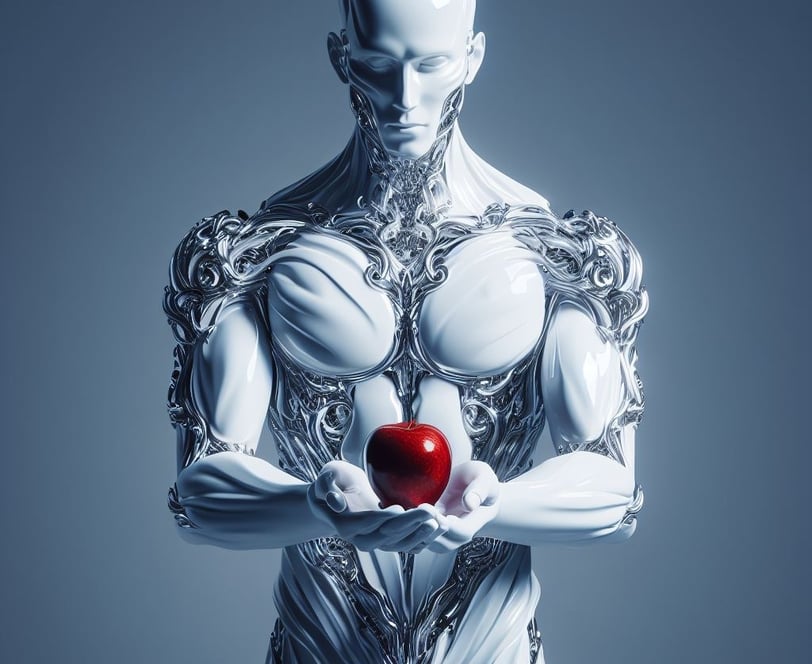Prometheus's Gift
AI and the Potential for a Dark Age
Walid Ghali
11/18/20232 min read


In Greek mythology, Prometheus, a Titan, stole fire from the gods and bestowed it upon humanity, an act that marked a turning point in human civilization. Fire provided warmth, light, and the ability to cook food, enabling humans to advance technologically and socially. However, this gift from Prometheus also came with a price, as it ignited a rivalry between humans and the gods, leading to conflicts and suffering.
The advent of artificial intelligence (AI) can be seen as a modern-day Prometheus's gift, a technological revolution that holds immense potential to transform our lives. AI has the power to automate tasks, improve efficiency, and solve complex problems, offering solutions in fields ranging from healthcare to environmental sustainability.
However, just as Prometheus's gift of fire had its consequences, the rise of AI also poses potential dangers. Like fire, AI can be a powerful tool, but it can also be misused, leading to unintended consequences and unforeseen challenges.
One of the primary concerns surrounding AI is its potential to exacerbate inequality and social unrest. As AI becomes more sophisticated, it could lead to job displacement and economic disruption, particularly in industries that rely on human labor. This could exacerbate existing socioeconomic disparities and fuel social unrest.
Another concern is the potential for AI to be used for malicious purposes, such as autonomous weapons, surveillance systems, and cyberattacks. AI-powered weaponry could make warfare more devastating and unpredictable, while advanced surveillance systems could threaten individual privacy and freedom.
Furthermore, AI's rapid development raises questions about its impact on human cognition and behavior. As AI becomes more integrated into our lives, it could lead to overreliance on technology, reducing human creativity and problem-solving skills. It could also create a sense of alienation and detachment from the physical world and human interactions.
The potential for AI to spark a dark age, similar to the one experienced by humanity in Greek mythology, should not be dismissed. Just as Prometheus's gift of fire ignited a rivalry between humans and the gods, AI could lead to conflict, inequality, and a loss of human control.
To avoid this dystopian future, it is crucial to approach AI development with caution and responsibility. We must establish clear ethical guidelines for AI development and use, ensuring that AI is used for the betterment of humanity, not its destruction.
We must also prioritize education and training in AI literacy, empowering individuals to understand the capabilities and limitations of AI, enabling them to make informed decisions about its use.
Moreover, we must foster collaboration between AI experts, policymakers, and the public, ensuring that AI development is transparent, inclusive, and accountable to society.
In conclusion, while AI holds immense potential for progress, it also carries significant risks. By approaching AI with caution, responsibility, and a commitment to human well-being, we can harness its power for good and avoid the potential for a dark age of AI.
